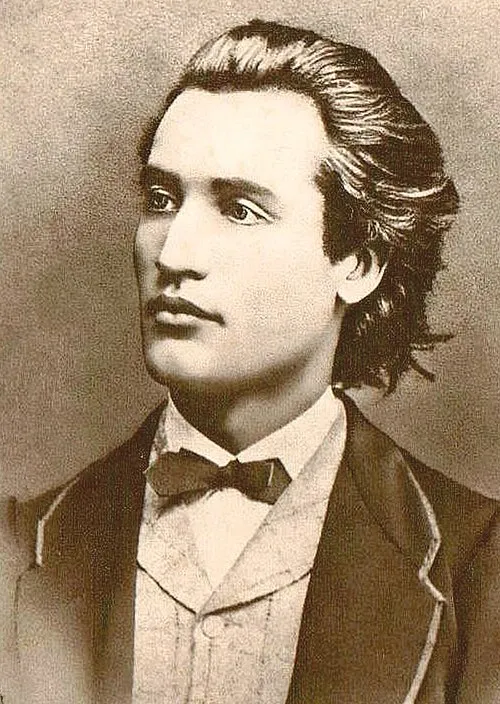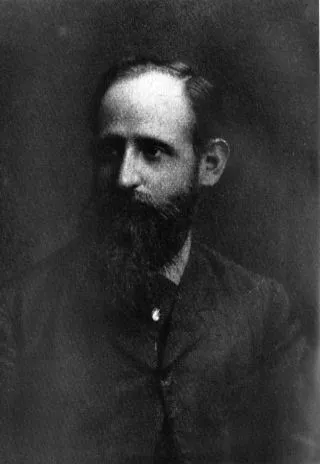
Full Name: Lewis Terman
Birth Year: 1877
Death Year: 1956
Profession: Psychologist
Other Roles: Eugenicist and academic
Notable Work: Known for his work on intelligence testing and the Stanford-Binet test
The Legacy of Lewis Terman: A Pioneer in Psychology and Eugenics
In the bustling world of academia during the late 19th century, a child named Lewis Terman was born in 1877. Growing up in a modest household in the small town of Indiana, his early life was marked by curiosity and an insatiable desire to understand human intelligence. His parents, though not wealthy, instilled a love for learning that would shape his future endeavors.
However, it was not until he attended college that Terman's path began to crystallize. Enrolling at the Indiana University, he immersed himself in psychology a field that was still finding its footing within the realm of science. Here, perhaps inspired by the groundbreaking work of contemporaries like G. Stanley Hall and John Dewey, he became fascinated with the notion of measuring intelligence. This obsession would ultimately lead him down a controversial road.
After completing his undergraduate studies with flying colors, Terman pursued further education at Clark University where he earned his Ph.D. By this time, he had already begun formulating ideas about standardizing intelligence tests an endeavor that would define much of his career. Ironically, as psychology evolved into a discipline grounded in scientific rigor and objectivity, Terman's later affiliations with eugenics cast long shadows over his legacy.
The Stanford-Binet Intelligence Test: A Milestone Achievement
In 1916, after years of research and collaboration with French psychologist Alfred Binet’s original concepts on measuring intelligence through standardized testing Terman unveiled what would come to be known as the Stanford-Binet Intelligence Scale. This test aimed to assess intellectual capacity by establishing a clear measurement for IQ . With this innovative approach to quantifying human intellect often utilizing age-related metrics he arguably changed educational practices forever.
Historians recount that upon its release, educators across America embraced this new tool eagerly; it became instrumental in identifying gifted students who needed more challenging curricula while simultaneously flagging those deemed intellectually deficient for additional support or even segregation into specialized programs!
The Eugenics Movement: A Controversial Affiliation
Despite this overwhelming success with standardized testing a testament to Terman’s intellect and foresight his work did not go unscathed from criticism. As societal attitudes shifted towards eugenics during the early 20th century a belief system promoting selective breeding among humans based on perceived genetic superiority Terman found himself deeply entrenched within these discussions.
Terman advocated for eugenic policies which aimed at improving social conditions through genetics; notably arguing for sterilization laws targeting individuals deemed “unfit” or “feebleminded.” Perhaps one could speculate how the ethical implications surrounding such practices were overshadowed by an almost zealous belief in scientific determinism prevalent among many intellectuals during this era.
A Lasting Impact on Education and Psychology
As years rolled into decades throughout mid-century America the fallout from both World Wars reshaped societal perspectives on race and ability considerably! Yet despite growing scrutiny regarding eugenics post-World War II due to its association with atrocities committed under Nazi Germany it appeared little affected Terman’s standing within psychological circles where influential ideas often persisted stubbornly long after their moral implications came into question.
Terman continued contributing significantly towards developing educational systems tailored around intelligence measurement well into later life including influential research projects such as The Genetic Studies Of Genius which tracked gifted individuals longitudinally over several decades! In fact even today the implications derived from their findings are keenly felt across modern education systems globally!
This remarkable study provided insights into how environment interacted dynamically alongside innate abilities a theme which remains pivotal when examining potential versus performance even now! However... it raises an intriguing question about whether harnessing or restricting access based solely upon scores is truly beneficial or merely perpetuates systemic inequalities?
The Decline of Influence & Posthumous Reflection
When Lewis Terman passed away peacefully at home back in 1956 the shifting tides against eugenic ideologies gained momentum leaving many wondering how historical figures reconcile their beliefs once they become outdated or morally contentious...Sociologists now view him through multiple lenses: Was he simply misguided? Or do we regard him instead as partaking unwittingly yet actively therein societal injustices?This duality encapsulates complexities surrounding legacies left behind amidst evolving cultural norms!Toddler toy company Fisher Price even created various educational toys bearing 'IQ' branding inspired initially stemming largely from some facets championed throughout previous chapters leading up until present day!Pondering upon these connections serves only to highlight our collective responsibility whilst dissecting perceived notions concerning innate ability across differing demographics whilst ensuring equitable opportunities remain accessible irrespective background circumstances prevalent today...
An Uncertain Legacy
Arguably... one might say that there remains something profoundly ironic about how figures like Terman embody both brilliance yet blunders reflecting humanity’s struggle toward enlightenment consistently battling prejudices persistent throughout history till our very own times! Even today in social media discourses where terms like 'giftedness' take center stage once more we must critically evaluate who benefits most amid conversations often fraught with complexities laden upon intricate hierarchies established artificially through antiquated paradigms regarding ability overall…






